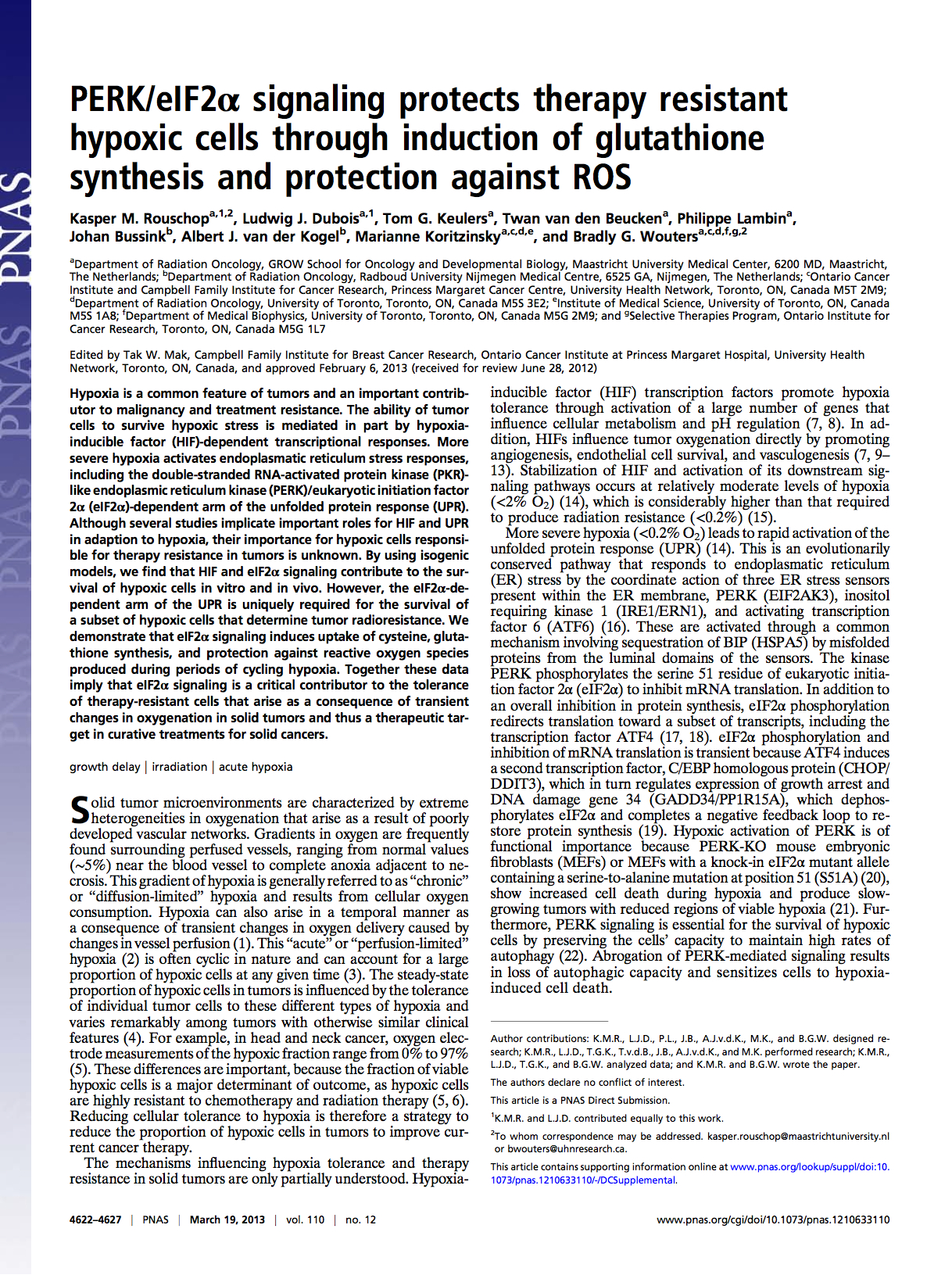PERK/eIF2α signaling protects therapy resistant hypoxic cells through induction of glutathione synthesis and protection against ROS
Kasper M. Rouschop, Ludwig J. Dubois, Tom G. Keulers, Twan van den Beucken, Philippe Lambin, Johan Bussink, Albert J. van der Kogel, Marianne Koritzinsky, and Bradly G. Wouters
Abstract
Hypoxia is a common feature of tumors and an important contributor to malignancy and treatment resistance. The ability of tumor cells to survive hypoxic stress is mediated in part by hypoxia-inducible factor (HIF)-dependent transcriptional responses. More severe hypoxia activates endoplasmatic reticulum stress responses, including the double-stranded RNA-activated protein kinase (PKR)-like endoplasmic reticulum kinase (PERK)/eukaryotic initiation factor 2α (eIF2α)-dependent arm of the unfolded protein response (UPR). Although several studies implicate important roles for HIF and UPR in adaption to hypoxia, their importance for hypoxic cells responsible for therapy resistance in tumors is unknown. By using isogenic models, we find that HIF and eIF2α signaling contribute to the survival of hypoxic cells in vitro and in vivo. However, the eIF2α-dependent arm of the UPR is uniquely required for the survival of a subset of hypoxic cells that determine tumor radioresistance. We demonstrate that eIF2α signaling induces uptake of cysteine, glutathione synthesis, and protection against reactive oxygen species produced during periods of cycling hypoxia. Together these data imply that eIF2α signaling is a critical contributor to the tolerance of therapy-resistant cells that arise as a consequence of transient changes in oxygenation in solid tumors and thus a therapeutic target in curative treatments for solid cancers.
Keywords: growth delay, irradiation, acute hypoxia, ROS
